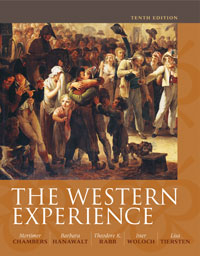1 A) the idea that colonization brought the expanding world trade network to people who had never experienced it. B) the idea that colonization brought technology and science to the "dark" areas of the world. C) the idea that colonization brought culture to "heathens." D) the idea that colonization brought jobs. E) the idea that colonization brought religious missions, which were saving the souls of "heathens." 2 A) independence movements and slave revolts. B) the rise of the market economy. C) the cultural revolution sparked by the Enlightenment. D) the growing popularity of communism and various forms of socialism. E) the growing power of the trade union movement, which threatened to interrupt global trade. 3 A) North Africa. B) the United States. C) the Netherlands. D) France. E) Britain. 4 A) Britain. B) Demark. C) the United States. D) Spain. E) Portugal. 5 A) a mythological people described in Classical texts. B) a safer path around the Cape of Good Hope. C) the missing continent, known as Terra Australis . D) the Hawaiian Islands. E) the Aleutian Islands. 6 A) the prohibition on wearing the veil. B) the prohibition on sati . C) mandatory elementary school education. D) making Sunday the official "day of rest." E) instituting centralized government in Delhi. 7 A) areas of neutral territory in which European and Asian officials could meet to discuss trade terms. B) places in which laborers could find employers through a kind of auction system. C) business headquarters established for various European countries to centralize their overseas operations. D) trading posts along the coasts of India, Java, the Philippines, and China. E) sweatshops set up in Asian countries to more quickly turn raw materials into finished goods. 8 A) the expulsion of the Arabs from India. B) the Battle of Plassey. C) the bankruptcy of the French East India Company. D) the French Revolution disrupted French colonialism in India. E) the relaxation of Indian tariff laws and customs duties. 9 A) the Choson dynasty. B) the Russian Empire. C) Mughal India. D) Qing China. E) the Ottoman Empire. 10 A) it had a highly literate population. B) its culture had already been Westernized to a large degree. C) of its strategic location on the Red Sea. D) of its abundant natural resources. E) of its access to inland Africa. 11 A) market forces B) nationalism C) religious influence D) the need for raw materials E) technological developments 12 A) ending the slave trade. B) coordinating the military effort to stamp out native resistance in Africa. C) laying ground rules for colonization. D) establishing individual states' rights to certain major shipping lanes. E) bringing an end to colonization in Africa. 13 A) the British and French. B) the French and Belgians. C) the Germans and British. D) the Germans and French. E) the French, beyond all other powers. 14 A) It's governmental infrastructure had collapsed to the point of anarchy. B) It ceased to be strategically and commercially important to the British as a gateway to Asia. C) The British colonial expansion meant that they were able to find their raw materials elsewhere. D) Their resources were spread too thin, and they were forced to focus elsewhere. E) The Ottoman Empire's military had collapsed and the British had no military resources with which to support them. 15 A) had hardened, and they were seen as biologically inferior. B) had softened to the point that Europeans questioned the biological explanations of inferiority. C) had changed to the point that Europeans saw them as equals. D) took on a caretaker nature; Europeans increasingly believed it was their mission to improve the lives of subject peoples. E) had brought them to believe that their core mission was to serve as civilizers. 16 A) the growing demand for a wide range of raw materials. B) the need for telegraph posts and naval coaling stations. C) modern weapons and tropical medicines. D) the radio and the airplane. E) dynamite used in the construction of roads and other infrastructure. 17 A) contemporary "savages" were evolutionary throwbacks whose cultural life provided a window onto the European past. B) colonial subjects were biologically the same as Europeans and thus required Europeans to invest in their education. C) colonial natives were biologically the same as Europeans, but history had provided them to serve as a lower class. D) the failure of Europeans to elevate contemporary "savages" to their own social level suggested a moral bankruptcy on the part of European culture. E) colonial natives must not be allowed to mix with European populations, for fear that the European race would cease to exist. 18 A) the aristocracy. B) religious societies. C) peasants. D) merchants. E) the Church. 19 A) near lack of conflict with the native population. B) use of education and training of the native population for government positions. C) use of local tribal leaders as stand-ins for colonial power positions. D) employment of extreme brute force. E) enlightened indirect rule. 20 A) Africa. B) Southeast Asia. C) Latin America. D) China. E) South Asia.





